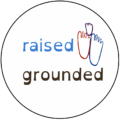Over time, there has been a profound shift to earlier and earlier concern about young children’s math and language skills, as educators, parents and researchers recognized what a profound influence the early years have.
Now, in the U.S. math skills seem to be expected early. (Other countries, such as Germany, are way more relaxed⁶. Interestingly, German secondary school students had a better math score in PISA 2018 than those in the U.S.⁷ But I digress …). For the U.S., for instance the CDC milestones say that most 5 year olds are expected to
- “Count[] to 10” and
- “Name [] some numbers between 1 and 5 when you point to them”¹
The kindergarten readiness assessment for Pennsylvania says children should be able to
- “Count[] to 20” and
- “Know[] written numbers from 1 to 10”
- “Understand[] simple addition and subtraction”
- “Name[] squares, circles, triangles and rectangles”
- “Describe[] the order of objects (first, next to)”
- “Compare two objects (bigger, taller, heavier)”
- “Sort[], count[] and compare[] quantities”²
Children in Pennsylvania enter kindergarten in Pennsylvania starting from 4 years 7 months old³.
Based on the Pennsylvania learning standards, toddlers as young as 24 months to 36 months are expected to be making comparisons and doing things like “Rote count to 5” or “Recognize some numerals. (e.g., notice numerals in the environment and names some of them, point to a numeral when asked)”⁸.
What math activities that you can do at home help toddlers develop early math skills?
A 2023 study by Miller et al. looked at the home environment of toddlers in Pennsylvania⁴. What kind of talking about math did parents do? What kind of activities involve math? And which of these are correlated with the toddler having better math skills?
Here’s what they found⁴:
- the more frequently the toddler engaged in “number concept activities and written number activities”, the better his or her “counting skills”
- the more parents’ talk in playing with their child included number utterances, especially “labeling set sizes”, the better his or her counting skills
- the more diverse the “number activities” (and the more time during the day that was spent on “math activities”, in general), the better his or her spatial reasoning skills
- the more frequently the child did “building activities”, the better his or her spatial skills
- the more the parents’ talk with their child included “locations, directions, orientations” during an activity, the better his or her spatial skills but
- the more the parents’ talk with their child during an activity included words such as “here” and “there” or “where”, the worse his or her spatial skills⁴.
But what about unstructured play?
Unstructured play is super important. In fact, research has found “that a lack of opportunities for unstructured, imaginative play can keep children from growing into happy, well-adjusted adults” and that the average time many children get to spend in unstructured play in the U.S. has been shrinking.⁵ Children in play-oriented preschools had way better outcomes than those in preschools focused on direct instruction, for instance with regard to later felony arrests or work suspensions⁵. Toddlers playing with blocks for 6 months has also been found to help children score “significantly higher on language tests than” those toddlers who didn’t play with blocks⁵.
So should you do math activities with your toddler? And if so which?
The cool thing about the results of Miller et al.’s 2023 study⁴ is that many of the results work without taking time away from play. A lot of the activities that based on the results are helpful for the development of math skills can be integrated into what you’re probably doing anyway. For instance:
- When on a walk, having or preparing food, going shopping, helping your toddler get dressed, etc. include number talk (e.g., saying “Let’s close the snaps on your shirt. It has one, two, three, four snaps”, pointing out your apartment number or house number as you walk by, saying “Let’s put all three yogurts that we bought into the fridge” etc.)
- Avoid just saying “here” and “there” but instead engage in specific spatial talk as you go about your everyday life with your toddler (e.g., “Can you put your toy away on top of the shelf, please?” instead of just “Can you put your toy there, please?”)
- Include some math books in your daily reading aloud time every now and then, and even in books that are not specific to math, sometimes engage in math talk (e.g., “Wow, there are seven chickens on this page. So many!”)
Moreover,
- get your toddler some wooden building blocks to play with
which helps unstructured play and math & language outcomes⁴ ⁵.
References:
1 CDC (n.d.). Milestone checklists. https://www.cdc.gov/ncbddd/actearly/pdf/LTSAE-Checklist_COMPLIANT_30MCorrection_508.pdf (last checked Aug 20, 2023)
2 Children first (2015). RESOURCE: Assessing Kindergarten Readiness in Pennsylvania – Jan 2015 https://www.childrenfirstpa.org/report/pennsylvanias-kindergarten-readiness-assessment/ (last checked Aug 20, 2023)
3 Commonwealth of Pennsylvania (n.d.). Title 22 Chapter 51 22 Pa. Code § 51.62. Admission of students. https://www.pacodeandbulletin.gov/Display/pacode?file=/secure/pacode/data/022/chapter51/s51.62.html&d=reduce (last checked Aug 20, 2023)
4 Miller, P.; Elliot, L.E., Podvysotska, T.; Ptak, C.; Duong, S.; Fox, D.; Coulanges, L.; Libertus, M; Bachman, H.J.; & Votruba-Drzal, E. (2023). Toddler home math environment: Triangulating multi-method assessments in a U.S. Sample https://www.frontiersin.org/articles/10.3389/fpsyg.2023.1105569/full (last checked Aug 20, 2023)
5 Wenner Moyer, M. (2016). Unstructured Play Is Critical to Child Development. https://www.scientificamerican.com/article/unstructured-play-is-critical-to-child-development/ (last checked Aug 20, 2023)
6 Baden-Württemberg Ministerium für Kultus, Jugend und Sport (2011). Information zum Orientierungsplan für Bildung und Erziehung in baden-württembergischen Kindergärten und weiteren Kindertageseinrichtungen. (https://kindergaerten.kultus-bw.de/site/pbs-bw-km-root/get/documents_E502939660/KULTUS.Dachmandant/KULTUS/Projekte/kindergaerten-bw/Oplan/Material/KM-KIGA_Orientierungsplan_2011.pdf) (last checked Aug 20, 2023)
7 OECD (2022). Mathematics performance (PISA). https://data.oecd.org/pisa/mathematics-performance-pisa.htm (last checked Aug 20, 2023)
8 Pennsylvania Learning Standards for Early Childhood. Infants - Toddlers https://s35729.pcdn.co/wp-content/uploads/2017/11/2014-Pennsylvania-Learning-Standards-for-Early-Childhood-Infants-Toddlers.pdf (last checked Aug 20, 2023)

